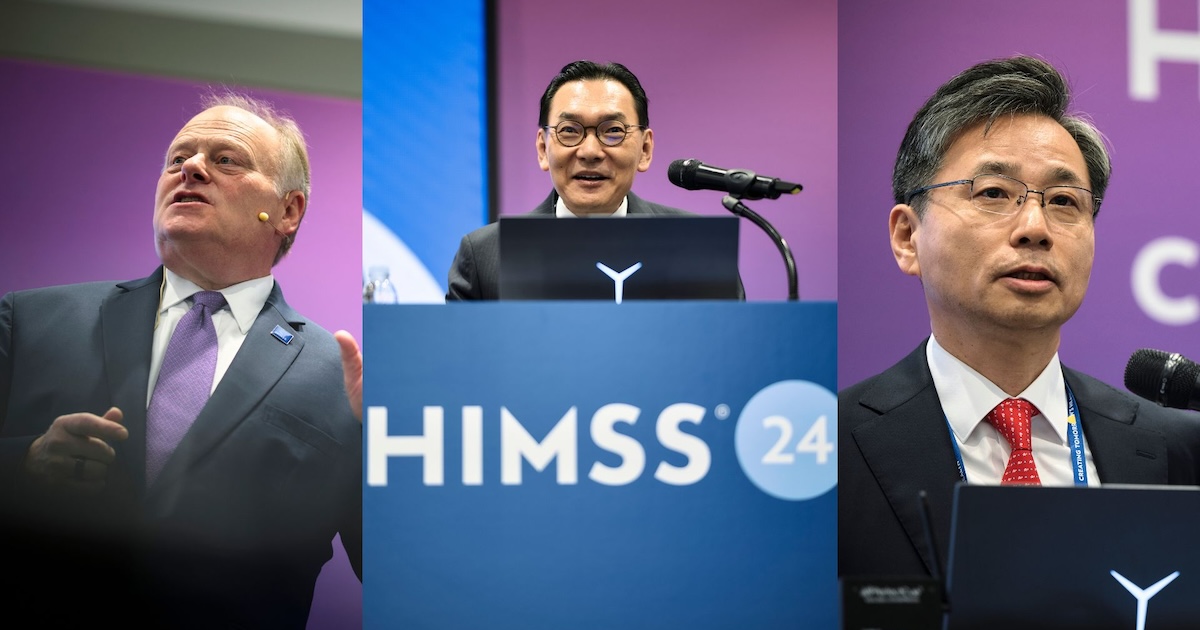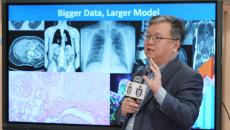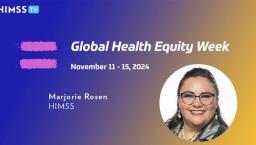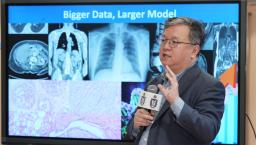Evolution of digital health on full display at HIMSS24 APAC

[Left-Right] Hal Wolf, President and CEO, HIMSS; Dr Poong-Lyul Rhee, Chief Digital Officer, Samsung Medical Centre, and Board Member, HIMSS APAC; and Dr Kyung-Hwan Kim, Head, Institute of Convergence Medicine Innovative Technology, Seoul National University Hospital, and Chair, HIMSS24 APAC Steering Committee.
HIMSS24 APAC gathered leaders to exchange ideas and insights that will shape the future of healthcare in the region.
This year's conference, with the theme, "Creating Tomorrow’s Health," focused on topics including AI, cybersecurity, 5G connectivity, EMRs, accelerating healthcare access, and people's role in advancing digital health.
"People, process, transformation... do not bring new technology and bend it to your organisation. A highly educated workforce can maximise each tool available," HIMSS president and CEO Hal Wolf emphasised in his welcome address.
Addressing current challenges in the healthcare sector, he said: "Data is useless until we turn it into useful information that can build knowledge... that allows us to compare, contrast and evaluate."
Dr Poong-Lyul Rhee, chief digital officer at Samsung Medical Center and HIMSS APAC board member, also shared his view on critical factors for maximising digital health.
"Digital transformation is not a project, but a state of mind to deal with challenges... [Technological] tools must be wielded by skilled hands, guided by the wisdom and compassion of healthcare professionals," the conference's co-chair said.
Integrating big data
In the opening keynote, "Creating Tomorrow's Health in Korea: Innovative Digital Health Transformation," Dr Kyung-Hwan Kim, head of the Institute of Convergence Medicine Innovative Technology at Seoul National University Hospital (SNUH), spoke about big data in South Korea’s healthcare sector.
"Our National Health Information Database builds a [digital] warehouse to host critical data such as medical history and hospital records... If data can be integrated into the medical information systems of each hospital, it can have great significance in improving health outcomes," said Dr Kim, who is also chair of the HIMSS24 APAC Steering Committee.
Dr Kim went on to emphasise the role of interoperability in medical data standardisation and SNUH’s current initiatives aimed at optimising data workflows.
"Synapxe has been used by SNUH for four years... where the platform uploads patient data on the cloud. This data will be stored in the cBioPortal platform. Patients [who share similar genetic issues] can be identified, and there can be real-time response for treatment."
He also referenced nationwide initiatives for data, such as the National Bio Big Data Project, which will be implemented over nine years.
"Addressing interoperability is crucial to boost patient access and patient convenience. How do we create more success [in digital health]? [It is through] innovation and transdisciplinary convergence of tech and medicine," Dr Kim maintained.



5d97.jpg)




















